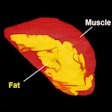
Having a higher body mass index (BMI) may not correlate with poorer jaw surgery outcomes or postoperative complications. This research was recently published in the Journal of Oral and Maxillofacial Surgery.
The study suggests that orthognathic surgery may be suitable for patients with elevated BMIs, a population that has traditionally been considered at greater risk of negative outcomes and perioperative complications, the authors wrote.
"Elevated BMI was not associated with worsened operative metrics or postoperative complications in patients undergoing orthognathic surgery," wrote the authors, led by Swapnil Shah of the Creighton University School of Medicine (J Oral Maxillofac Surg, April 4, 2024).
In the U.S., obesity rates have risen over the past 20 years. Numerous published research has tried to clarify the correlation between BMI, surgical outcomes, and complication rates, but the results have been mixed. To date, there is little evidence of the link between elevated BMI on perioperative outcomes related to oral and maxillofacial surgery.
Between January 2015 and December 2018, 118 patients had bimaxillary and mandibular osteotomies. About 20.3% underwent segmental maxillary osteotomies. The patients' ages ranged from 15 to 62. Patients were categorized by BMI (underweight/normal BMI: <25 kg/m2, overweight BMI: 25-30 kg/m2, and obese BMI: >30 kg/m2), according to the study. Additionally, preoperative data, such as anesthesia and operative times, were collected from medical records. Postoperative variables, like length of stay, antibiotic use, postoperative visits, wound issues, and infections, were also noted.
Multivariate logistic regression analysis that factored in age, race/ethnicity, BMI, and operative time revealed that longer operative times were linked to the need for post-discharge antibiotics (odds ratio [OR], 1.03; 95% confidence interval [CI], 1.01-1.05; p <0.01), as well as an increased number of postoperative appointments (OR, 1.02; 95% CI, 1.01-1.04; p<0.01), according to the results.
However, no significant associations were found between BMI and operative metrics or postoperative complications, they wrote.
Nevertheless, the study had limitations. The study was limited by a small number of plus-sized patients, which was 15%. To strengthen the findings, a larger and more diverse sample is needed, they added.
"The data showed no association between BMI, whether by category or as a continuous variable, and operative metrics," Shah et al concluded.



















